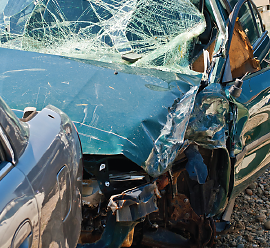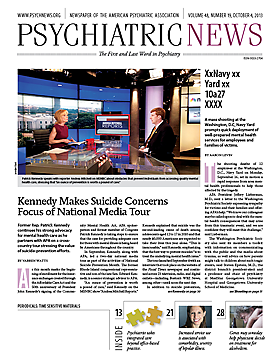While much attention has been paid to the heightened risk for suicide in people with mental illness, it appears that accidental death is a greater danger to them than suicide is.
This troubling finding has emerged from a large national population study headed by Casey Crump, M.D., Ph.D., a clinical assistant professor of medicine at Stanford University. The results were published online August 22 in the British Journal of Psychiatry.
Crump and his colleagues used Swedish national health and other registries to learn about the accidental-death risk among psychiatric patients—a subject about which little has been written.
The study population consisted of all adults living in Sweden in 2001—some 7 million people. The researchers used the Swedish Death Registry to learn which of these individuals died during the subsequent eight years and from what cause. The researchers then used the Swedish Hospital Registry and Swedish Outpatient Registry to determine which people had been diagnosed with a mental illness from 2001 to 2008 and how many of them had died by accident during that period. They then compared those data with cause-of-death data for people without mental illness.
They found that in the eight-year study period, 26 percent of those who died by accident had received a psychiatric diagnosis, while just 9 percent of those without a psychiatric diagnosis died by accident. In short, people with mental disorders had a substantially increased danger of suffering an accidental death.
The researchers also compared rates of accidental death and suicide among those with a mental illness. They found that the risk of psychiatric patients dying by accident was higher than that of dying by suicide—0.9 percent versus 0.6 percent.
Furthermore, they evaluated which mental illness predisposed people to anaccidental death. The strongest risk factor for death by accident was alcohol abuse—a 14-fold increased risk for women and a nine-fold risk for men—and other substance use disorders—an eight-fold risk for women and a 10-fold risk for men.
Yet several other mental disorders were also strong risk factors for an accidental death among both women and men. Personality disorders were associated with a seven-fold risk among women and a four-fold risk among men. And the risks were two- to four-fold among individuals with anxiety disorders, bipolar disorder, depression, or schizophrenia. Mental disorders overall were linked with more than a five-fold risk of accidental death.
Strong associations were also found between having a mental illness and different types of accidental deaths, especially poisoning and falls. Sociodemographic risk factors for a mental illness-related accidental death included male gender, older age, unmarried status, and low socioeconomic status.
One possible explanation for these findings, Crump and his colleagues suggested, is that common symptoms of psychiatric illness, such as fatigue, poor concentration, and sleep disturbance, may increase the chance of accidents through impaired judgment, coordination, and reaction time. Psychotropic medications may also contribute to these risks as a result of side effects or unintentional overdosing. In addition, some mental disorders are linked with risk-taking or self-destructive behaviors that may occur on a continuum from subintentional to intentional, increasing the chances of either an accidental death or suicide, they noted.
“These findings highlight the need for psychiatrists and other health care providers to be more aware of the risks of accidental death in addition to suicide among psychiatric patients,” Crump said during an interview with Psychiatric News. “Interventions to reduce early mortality among these patients should address underlying common determinants of accidental death in addition to suicide.”
The study was funded by the U.S. National Institute on Drug Abuse and the Swedish Research Council. ■

